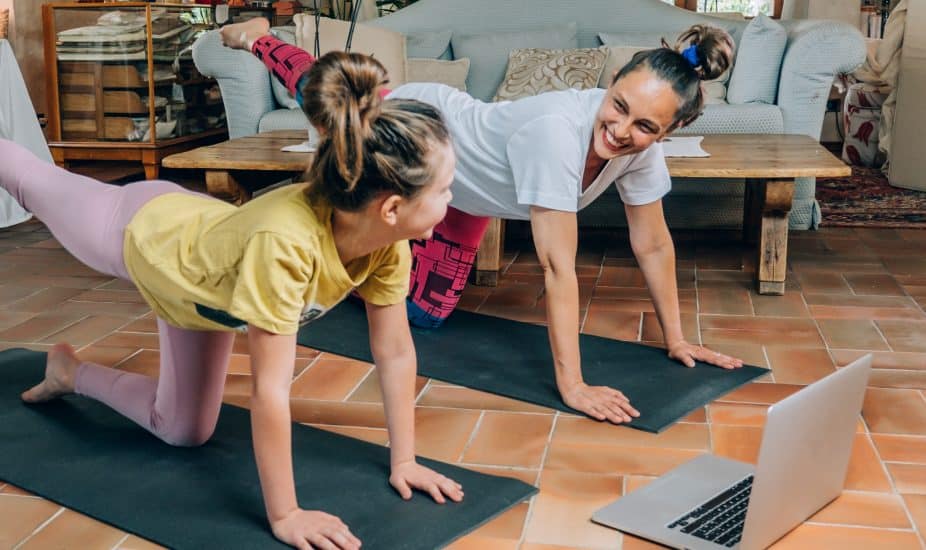Stress happens. It’s a part of life. A healthy one, in fact.
Psychologists are quick to remind us that stress is neutral, if not a positive experience. Stressful situations cause us to be stretched and grow.
Kids experience stress — a lot. Try to remember or imagine what a typical teenager goes through on any given day. Pressure from friends, parents, teachers, and coaches. The constant threat of peer rejection. The feeling like you’re always behind. Those scenarios trigger big feelings which can be overwhelming to a kid who’s still figuring out life.
Stress is actually a response we have to things called stressors. Stressors are situations, interactions, or events that trigger a threat response in us. Stressors can be external events happening towards us or around us, or they can be internal feelings. They can also be non-events (think about when your paycheck doesn’t get deposited — that non-event has become a stressful situation!).
We all respond differently to stressors. For one person they feel threatened when they feel like someone doesn’t like them. Another person might not bat an eye.
There are two dynamics that everyone can learn to manage stress effectively:
- Diagnosis: the ability to understand how you’ve been triggered, recognize what’s happening to you on the inside, and be able to identify the source of the stress.
- Prescription: the ability to respond positively and productively to your own stress response. In other words, we’re talking about self-awareness and self-management.
These are the critical skills one needs to be able to handle the complexities of life, especially when things are difficult.
This is where coping skills come into play.
We can intentionally teach our kids effective coping skills so they can handle difficult situations or difficult feelings.
There has been great research to help us understand what happens internally when we feel triggered by a stress response: in a split second the chemical epinephrine gets pumped into our brain, so our heart rate and blood pressure increases, muscles tense, and we start breathing quickly. Our entire biological system gets primed to GO — go fight, go run, or play dead.
Key systems inside our bodies turn off, like critical thinking and reasoning, learning, creativity, and empathy.
When we’re in a stress response we can’t:
- Think clearly
- Handle complexity
- Connect divergent ideas or viewpoints
- Recall our personal values or ambitions
- Connect with others
- Learn new concepts
Read through that list again, and consider what we go through, and what our kids go through, when we’re experiencing stress.
They can’t learn or make wise choices until they work through their stress cycle.
What if we learned to be more vigilant about our stress and learned how to respond with simple, quick actions? What if we modeled and taught these things to kids?
From the book Burnout: The Secret to Solving the Stress Cycle, authors Emily and Amelia Nagoski share 7 simple coping strategies anyone can try when feeling stressed or overwhelmed:
- Physical activity (30 min a day of exercise would be excellent, but even clenching every muscle in your body for a count of 10 will do wonders)
- Deep, concentrated breathing for a couple of minutes
- Have a positive social interaction with someone you enjoy
- Laughter
- Hug (for at least 20 seconds)
- A good cry
- Create something
Imagine if more teachers were equipped with this simple understanding as they designed their curriculum and lesson plans. Think about parents who learned to implement these simple tactics with their kids at home.
Dream with us about kids learning this about themselves and being guided consistently over time to pay attention to their stress response, taught simple strategies to manage it better, and praised when they took the initiative.
So, this week:
- Carve out ten minutes to walk through coping strategies with your kid(s)
- Show them the list above
- Talk about what healthy, productive coping strategies work for you when you’re feeling stressed or struggling with big feelings
If you catch them practicing any of the strategies, give them specific praise and encouragement, and ask them how they felt before and after.
Coping skills help teens work through challenging emotions, feelings, or situations. “Natural Highs” are another word for coping skills, so if your kid already has one, great, and if they’re not sure, help them find one. Here’s a Natural High activity you can use to help kids find their natural high.
Having a passion that makes them come alive is an incredibly effective coping strategy that pulls the rest of their life along towards flourishing.
Don’t forget, our Natural High Storytellers are short videos with celebrities and influencers sharing their natural highs and how they navigate through life’s complexities.

